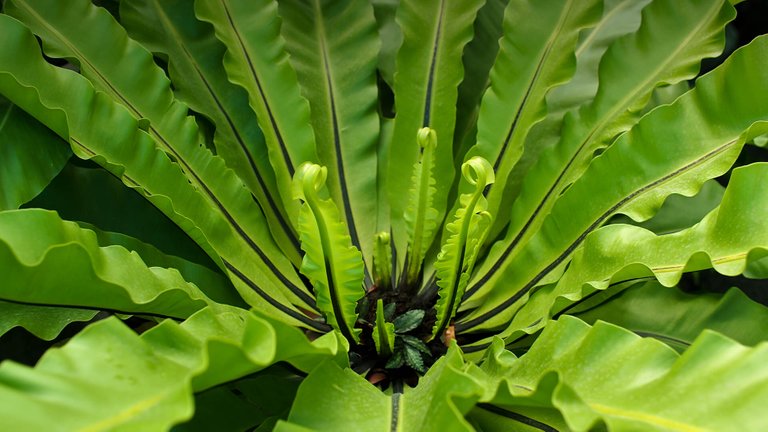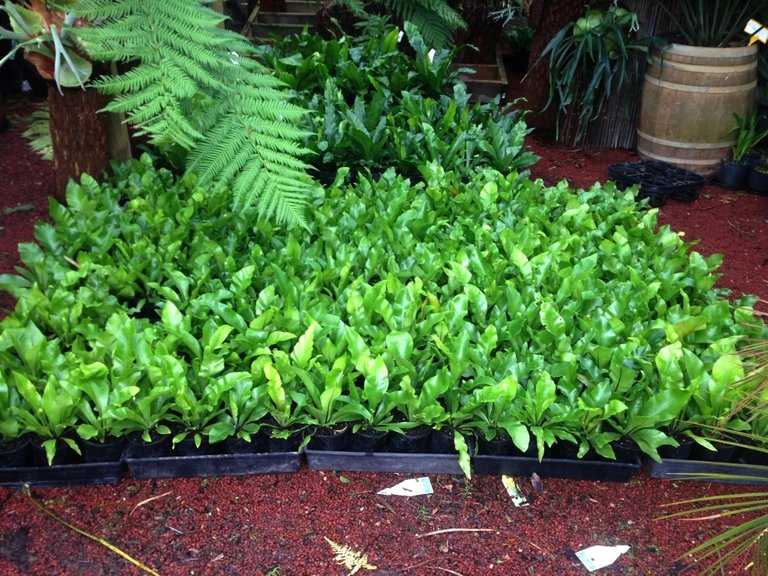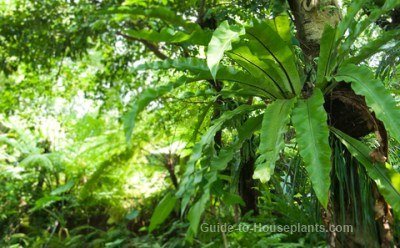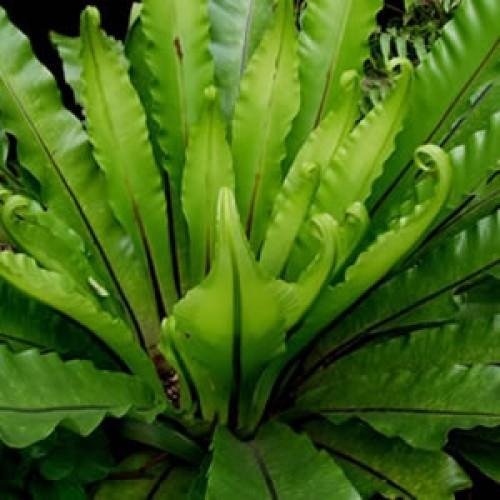Bird's nest ferns (Asplenium nidus) are actually one of two Asplenium species found in cultivation. The other, often called the spleenwort or mother fern (Asplenium bulbiferum), is much harder to grow and looks nothing like its cousin. These ferns are naturally epiphytic, and in their rainforest homes, they can be found growing high in the crooks of trees.
They grow in a series of erect, spoon-shaped, and apple-colored fronds that rise from a central rosette. Healthy plants can have fronds up to three feet, but this is rare in most indoor situations.These are beautiful plants but require a bit of babying to reach their fullest potential.
If you follow the correct growing conditions for your bird's nest fern, it will likely live for many years and always look its best.Light: Filtered light to light shade. Don't expose to direct sun other than very early morning sun. Water: These are true jungle plants—keep their compost moist and provide the highest humidity possible.Temperature: Bird's nest ferns will begin to suffer below about 55 F for prolonged periods. They are best kept between 70 F and 80 F, with high humidity. A warming pad will often help dormant plants.
Water: These are true jungle plants—keep their compost moist and provide the highest humidity possible.Temperature: Bird's nest ferns will begin to suffer below about 55 F for prolonged periods. They are best kept between 70 F and 80 F, with high humidity. A warming pad will often help dormant plants.
Source.
You are viewing a single comment's thread from: